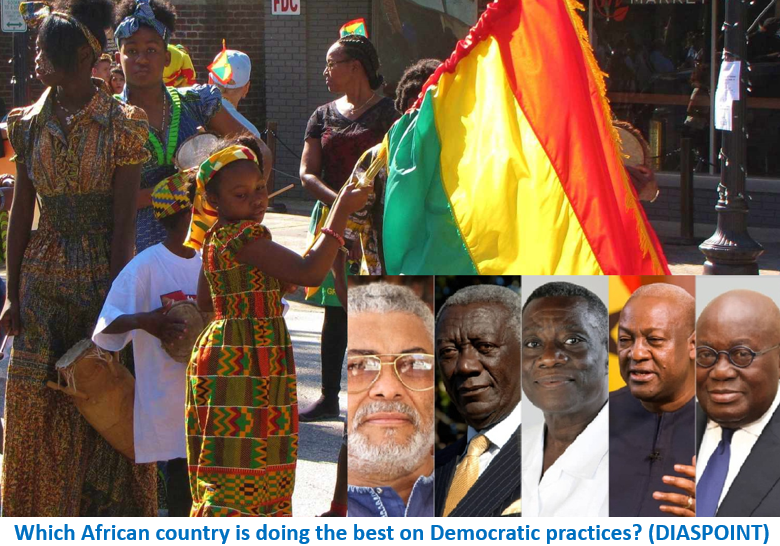Looking back at three decades of Ghana’s democracy
Post By Diaspoint | January 12, 2024

Ghana marked 30 years of democratic rule on 7 January 2023. Ghanaians are justifiably proud of their country’s three decades of democratic governance, while also aware that Ghana faces challenges to its democratic longevity, write Jeffrey Haynes and Felix Kumah-Abiwu.
Ghana’s political landscape prior to the constitutional era
1982 began with a military coup that was integral to the country’s political future. Led by Flight-Lieutenant Jerry John Rawlings, the Provisional National Defence Council (PNDC) adopted military-based radical populism that initially insulated the regime from civil society demands for an elected civilian government. But in the decade following the coup, Ghana suffered abuses of political rights and civil liberties.
Sustained authoritarianism enabled the PNDC to pursue economically draconian policies to rebuild Ghana’s sagging economy, made possible by the support of Western donors, notably the International Monetary Fund. Although the PNDC’s economic recovery programme led to macro-economic improvements, Rawlings and the PNDC suffered a legitimacy crisis. Many of the regime’s early supporters became disenchanted and popular support for the regime declined.
Rawlings-style populism temporarily strengthened the Ghanaian state, enabling the government to cope with certain problems created by economic scarcity, but without making it clear what was the political way forward. Elements of civil society, notably the educated middle class organised in so-called ‘professional’ organisations, unsuccessfully demanded a return to constitutional rule. But over time, political opposition coalesced into an anti-PNDC movement, with the aim of a return to multi-party democracy.
Transition to democracy
Read More from original source
